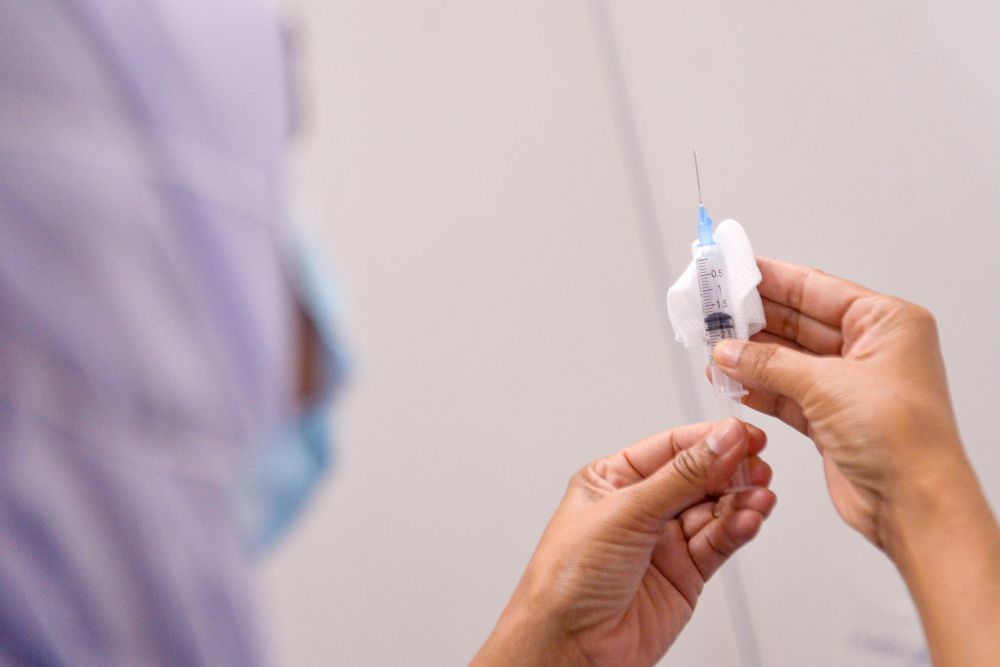
A nurse loads a syringe with a dose of Covid-19 vaccine at a vaccination centre in Kapar, Klang on April 28, 2021. — Malay Mail photo
MIRI (May 4): The state government should give Sarawakians the freedom to opt for the AstraZeneca vaccine under the ongoing National Covid-19 Immunisation Programme, as was the case for folks in Kuala Lumpur and Selangor, said a senior doctor.
Dr Roland Dom Mattu also said the AstraZeneca vaccine is a better option for the rural population as the vaccine does not require storage at sub-zero temperature.
The chief medical officer and consultant gynaecologist of a private hospital in Miri made this suggestion in view of the dire situation in Sarawak where there has been a surge in new Covid-19 cases and a shortage of the Pfizer vaccine in the country.
“We have little choice when we don’t have Pfizer available – if people in KL are given the option, Sarawakians should also have the freedom to choose when they have been given all the right information,” he said.
He was asked to comment on the turnaround by the authorities to make AstraZeneca vaccine optional for all adults, resulting in all 268,000 doses of the vaccine fully booked within three hours in Selangor and Kuala Lumpur.
Some 6,400 people re-registered for the AstraZeneca vaccination when the voluntary option was given last week, after having pulled out when it was part of the national programme.
Coordinating minister Khairy Jamaluddin said 8,000 people cancelled their registrations when it was first revealed that AstraZeneca would be included in the National Covid-19 Immunisation Programme for those aged above 60.
The Science, Technology and Innovation Minister urged the Sarawak government to reconsider his offer to use the AstraZeneca vaccine to speed up immunisation in the state after the state turned down the option offer earlier.
A total of 1.1 million doses are expected to arrive this month via the Covax facility, followed by 610,000 doses from AstraZeneca itself in June, 410,000 in July, as well as 1.2 million in August and September.
Dr Roland, who has been practising medicine for 43 years, said Sarawak should seriously consider using this vaccine for the rural population instead of relying on Pfizer as it is easier to manage its storage and distribution.
“Compared to Pfizer, refrigeration is not an issue for AstraZeneca vaccine storage as it does not require sub-zero temperature,” he pointed out.
On blood clot, he said the possibility is minimal compared to dying from complications of smoking or road accident, as it affects only a few in a million.
A Kelabit from Bario Asal village near the border with East Kalimantan of Indonesia, he said the benefits far outweigh the risk of infections in rural Sarawak where there are only about 0.5 million people to be vaccinated.
Meanwhile, his daughter and son-in-law in KL had taken up the federal government’s offer and will take the first shot of the vaccine on May 26 this year.
Dr Roland said delays in vaccination will affect the state government’s goal of attaining herd immunity through vaccination of 80 per cent of those eligible in the state.
